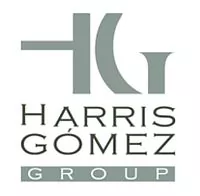In 2009, Law Nº20,322 was enacted providing the basic grounds in which tax disputes would be resolved through the new "Tax and Custom Duty Courts". Previous to the law being enacted, tax disputes were solved by the Director of the Chilean IRS, which was problematic from a due process perspective because the same person that had applied the fine or had ruled that a taxpayers' declaration was under legal review was also acting as the judge over the proceedings! Only at a second tier, the Appeal Courts could resolve them.
In addition, the Director of the IRS delegated his faculties to Regional Directors that were usually the ones tasked with solving the tax disputes between taxpayers and the Chilean IRS. The problem with all this is that pursuant to the law, the only person with powers to do so was the Director of the Chilean IRS.
The system started falling apart when the Supreme Court accepted claims arguing that the Regional Directors were acting beyond their scope of powers that led to the annulments of past decisions.
Fortunately and considering the problems that our tax dispute system had, by the beginning of this decade, gradually a new proper Tax Jurisdiction has came into force.
How does the audit system work?
There are many situations that may lead to the Chilean IRS presenting a claim or an action against a taxpayer. Usually, in the case of an audit were the Chilean IRS may challenge the tax declaration of a company, the taxpayer is required to provide documents in order to prove the declaration of taxes held beforehand. For this type of matter, all accounting books, tax receipts, invoices, contracts, etc. are required. In addition, the IRS usually coordinates a formal meeting to explain the discrepancies that arose from the audits and tax declarations. After reviewing the information provided by the taxpayer or in some cases, the lack of, the IRS provides the amount of taxes the taxpayers needs to pay, known as "liquidation". The last part of the administrative procedure is to provide an official order for payment. If the taxpayer does not pay on time, the IRS remits the case to the National Treasury, who then begins a compulsory payment procedure. At this last stage, any defence based on tax arguments is out of boundaries so essentially any action by the taxpayer is limited to the bare minimum.
However, before getting to this stage, at any of the audit stages ruled at an administrative level, the taxpayer may present a formal motion directly before the IRS Administration or before the Tax and Duty Courts. For the latter, the counsel of an attorney is required unless the case is for a trivial amount.
In addition, if there is malicious fraud detected in the audit process, the Director of the IRS may file criminal actions against the Taxpayers. These kind of procedure are held at Criminal Courts were the charges will be carried out by the Director of the IRS and public prosecutors.
In this regard, we have seen lately how public media and criminal prosecutors pressure the IRS to file criminal actions. As said before, the power to file criminal charges for tax matters is granted only to the Director of the IRS. Only then can public prosecutors carry out the criminal persecution.
How to act when contingencies are revealed in IRS audit procedures?
There is a fine line between legal tax planning and the evasion or elusion of taxes. There is also a grey area of wrong doing caused by an honest mistake and those actions intended to fraud the public treasury.
All of these matters tend to become very technical and expert support is advisable from day one. There is a short deadline of 90 business days to present a formal defence before Tax Courts. We note that it is important to collaborate from day one with the Chilean IRS or to design a well thought out strategy. Not showing up for formal meeting and not delivering requested documentation may mean, due to disclosure norms, that at the Court level, the taxpayer may no longer have the right to reveal those documents that were not provided at an administrative level. This may leave the attorney responsible for a defence with limited evidence due to errors made beforehand.
In addition, the tax reform has incorporated a new anti-avoidance general norm. This new rule states that tax planning based on "simulation" or "abuse" will be prosecuted by the IRS. They can apply fines, disregard operations and even take cases to criminal courts, with the support of public prosecutors, when the circumstances require.
Before the anti-avoidance became law, aggressive tax planning used to be a grey area because Tax Courts did not have all the legal tools needed to punish and annul complex transactions, which although legal in their formal structure, were clearly constructed to avoid taxes.
Overall the transactions that are most audited are tax losses (expenses and the claim of tax credits), operations with related parties, and international transactions that may mean remitting funds abroad. We suggest companies receive a second opinion on their operations whenever there may be complex tax issues involved. A preventive overview may avoid unwanted contingencies, moreover, considering the major tax reformations that the current Administration has undertaken.
Lastly, the IRS usually has a very conservative position that may not take into consideration the taxpayers business. The Chilean IRS may investigate but in many cases the discrepancy can be solved through meetings with the IRS to explain the transaction in terms of how they relate to the taxpayers business avoiding tax disputes at a jurisdictional level.
The content of this article is intended to provide a general guide to the subject matter. Specialist advice should be sought about your specific circumstances.

